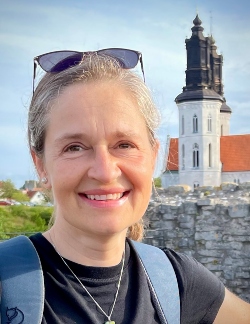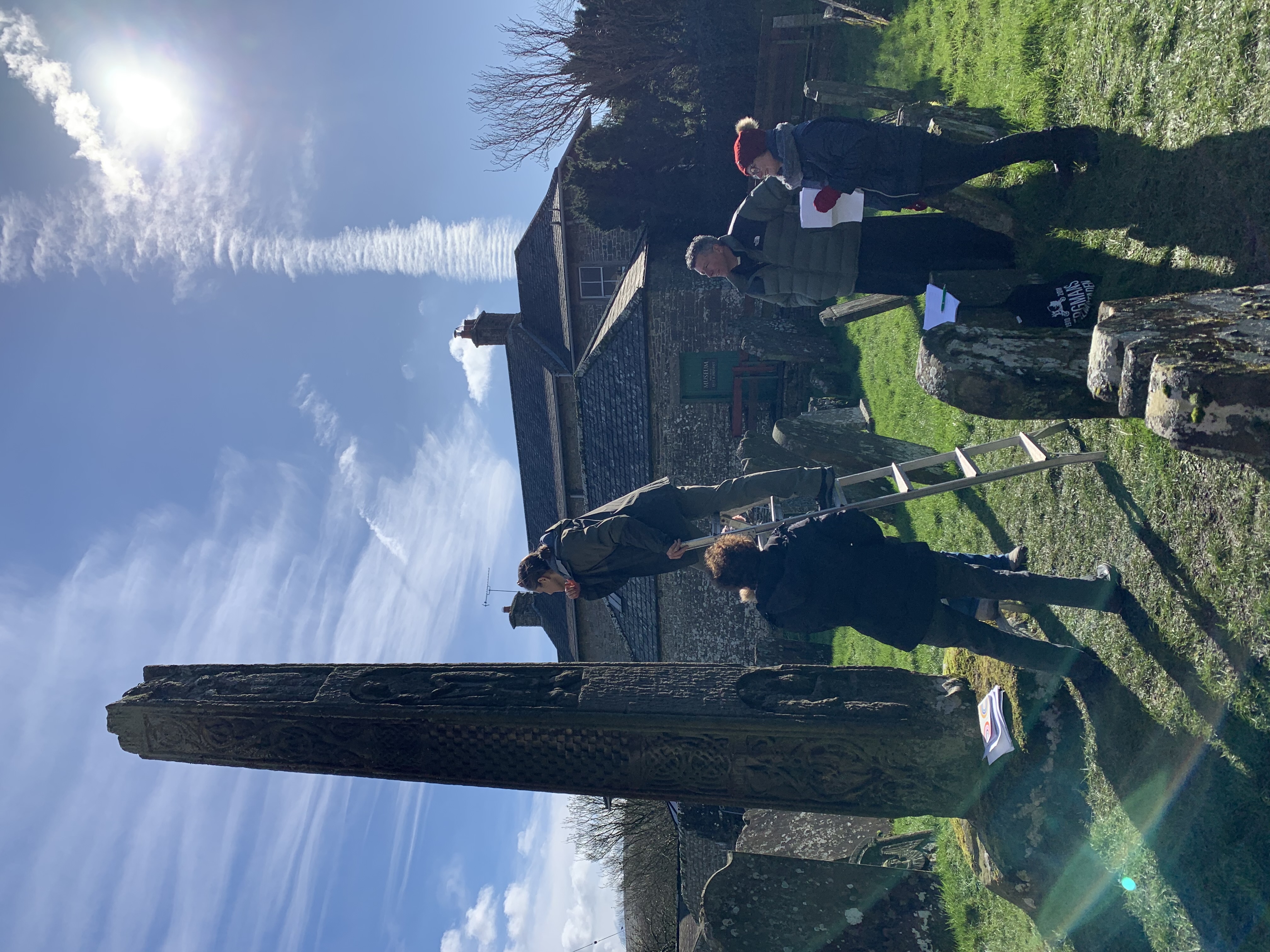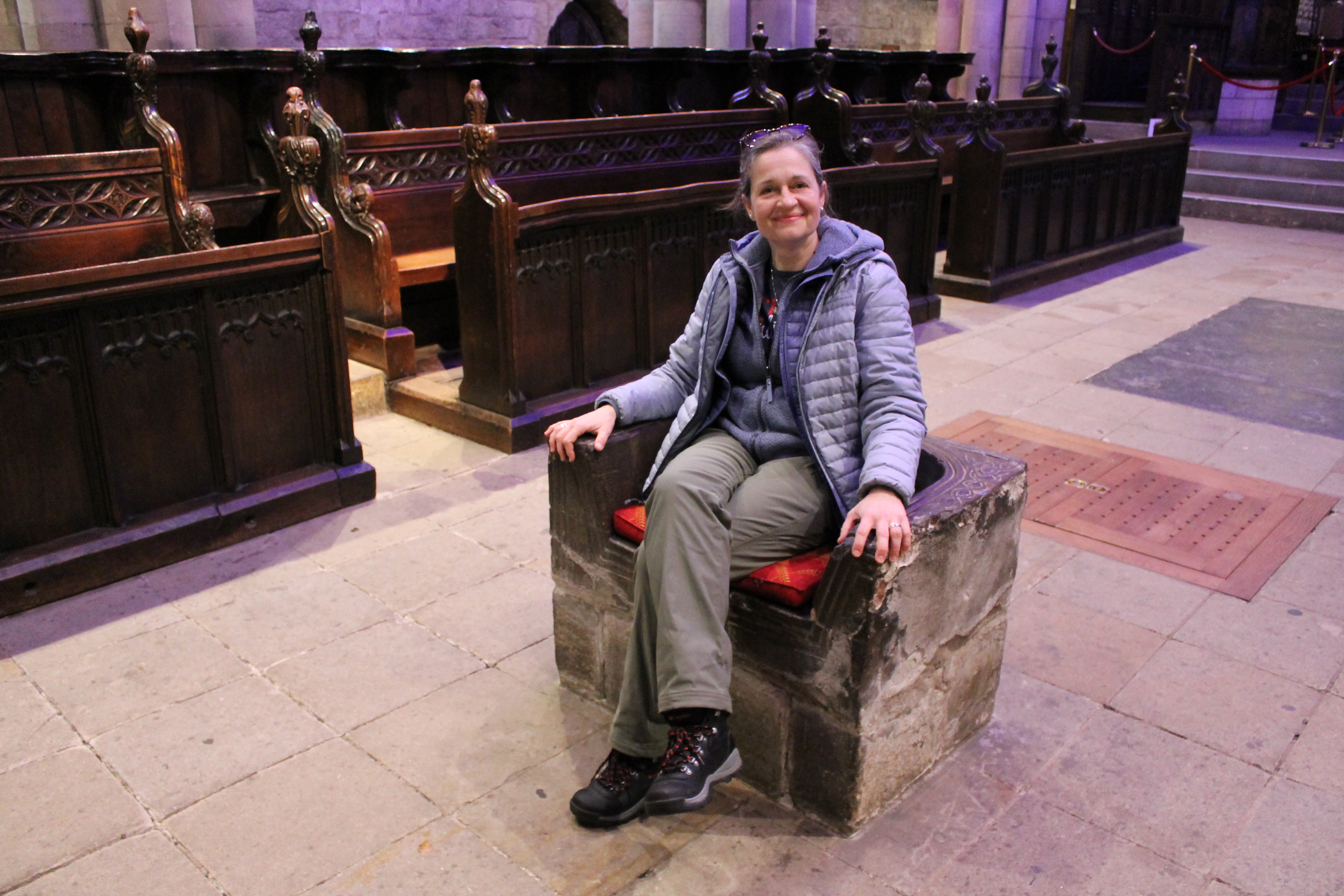
Department
School
Expertise
Profile
Lilla Kopár is an interdisciplinary scholar of the Middle Ages, with a focus on early medieval England and Scandinavia. She studies the intersections of visual culture and literature; epigraphy and inscribed objects; myth and religion in the Viking Age; and the art of commemoration. Her monograph, Gods and Settlers: The Iconography of Norse Mythology in Anglo-Scandinavian Sculpture (Brepols 2012), examines the influence of Norse mythological and heroic narratives on stone carvings of Viking Age England, and evaluates the sculptural evidence for the process of cultural integration and conversion of Scandinavian settlers. Her most recent publications and research projects explore strategies of visual story-telling; runic writing and epigraphy; animal representations in stone sculpture; and death, memory, and stone monuments in early medieval England.  Dr Kopár is also involved in digital humanities: she has served as co-director and PI of the NEH-funded Project Andvari: A Digital Portal to the Visual World of Early Medieval Northern Europe, and as co-director of the Andvari Iconographic Thesaurus project, supported by the Samuel H. Kress Foundation. Further, Dr Kopár is a contributor to major international research projects including the Gotlandic Picture Stones: The Online Edition (Sweden) and Project RuneS: Runic Writing in the Germanic Languages (Germany; Old English Runes working group). With Dr Sarah Ferrario, she is co-founder and convenor of CUA's Really Dead Languages workshop series.
Dr Kopár is also involved in digital humanities: she has served as co-director and PI of the NEH-funded Project Andvari: A Digital Portal to the Visual World of Early Medieval Northern Europe, and as co-director of the Andvari Iconographic Thesaurus project, supported by the Samuel H. Kress Foundation. Further, Dr Kopár is a contributor to major international research projects including the Gotlandic Picture Stones: The Online Edition (Sweden) and Project RuneS: Runic Writing in the Germanic Languages (Germany; Old English Runes working group). With Dr Sarah Ferrario, she is co-founder and convenor of CUA's Really Dead Languages workshop series.
Dr. Kopár currently serves on the Advisory Board and as Treasurer of ISSEME (International Society for the Study of Early Medieval England), and was formerly a member of The Medieval Academy’s CARA Committee. She appeared on the History Channel, on the Norwegian Public Radio (NRK), and contributed to an exhibition at the National Geographic Museum.
Dr. Kopár offers undergraduate courses on the history of British literature (survey), on Beowulf, Chaucer, and Norse mythology, interdisciplinary courses in medieval studies and on the Vikings, and graduate courses on the history of English, Old English language and literature, and on medieval monsters. She supervises undergraduate and graduate research on early medieval literature and culture.
Dr. Kopár earned her degrees (M.A. in English, M.A. in German; Ph.D. in English Literature) at the University of Szeged, and joined the faculty of CUA in 2006, having taught in various capacities in Hungary, Germany, and at UNC—Chapel Hill.
Administration
Dr. Kopár serves as Assistant Dean for Undergraduate Programs in the College of Arts & Sciences and as interim director of the Center for the Study of Early Christianity. She holds a dual appointment with the Dept. of Ancient and Medieval Languages and Cultures. Dr Kopár is an enthusiastic supporter of all things medieval on campus, and served as director of CUA’s interdisciplinary Center for Medieval & Byzantine Studies for fifteen years (2010-2025).
Awards
Dr. Kopár has been a visiting scholar at Cambridge, Leicester, Durham, Göttingen, Munich, and Eichstätt. Her research has been recognized and supported, among others, by The British Academy, the NEH Office of Digital Humanities, the Samuel H. Kress Foundation, DAAD (German Academic Exchange Service), TEMPUS, the Soros Foundation, Arthur Prowse Fellowship of Durham University, Pro Renovanda Cultura Hungariae Award, and the Norwegian Ministry of Education. In 2023, Dr Kopár was recipient of the Griffith-Rousseau Award for Excellence in Humanities Research.
